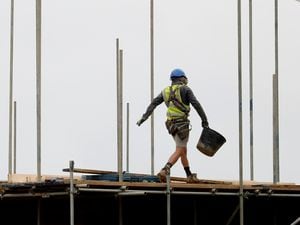Spring prices rise highest for 13 years
PRICES rose more sharply in the second quarter of this year than in any spring for 13 years, according to the latest figures from the States of Guernsey.

The Guernsey Quarterly Inflation Bulletin shows a quarterly percentage change in prices – excluding mortgage interest payments – of 1.6% in the three months to the end of June. The equivalent figure in 2008, the year of the global financial crash, was 2.1% and only two quarters since then have surpassed the latest figure – 1.8% in the first quarter of 2012 and 2.1% in the first quarter of 2017.
States analysts said quarterly changes in this RPIX measure are subject to seasonal variations, with the first two quarters often the highest.
Prices rose by 2.3% during the full year to the end of June, which was slightly lower than in the previous year, which saw an RPIX rise of 2.4%.
Housing costs contributed 0.7 of the 1.6% increase, consisting of rents, rates, maintenance and service costs. Taking into account mortgage interest payments, the cost of living rose by 1.4% in quarter two – with overall housing costs accounting for 0.6 of those percentage points – and by 2.2% over the year.
Travel fares and leisure services saw the biggest price increases between April and June and although these sectors had been suppressed by Covid-19 restrictions in the previous quarter, this does not account for the increase.
This is because when goods and services have been unavailable in previous quarters, their prices are assumed to have remained the same – or to have changed in the normal seasonal way, where appropriate – rather than going missing from the calculations for that period.
The only category to see a drop in prices was clothing and footwear, accounted for by reductions in the prices of sportswear, coats and jackets.
Dave Newman, chairman of the Confederation of Guernsey Industry, said the main concern among members was currently the rising cost of raw materials and wages.
‘Given the present shortage of skilled and unskilled workers on the island, along with the population management law, Covid and Brexit, employers are tapping into a limited pool of employees,’ he said.
‘This is leading to employers offering increased wages and benefits to entice employees from their current employer. The costs of both of these two issues will eventually be passed on to the consumer.’
The annual change in the UK RPIX was 3.9% at the end of June, while the equivalent figure in Jersey was 3.3%.





